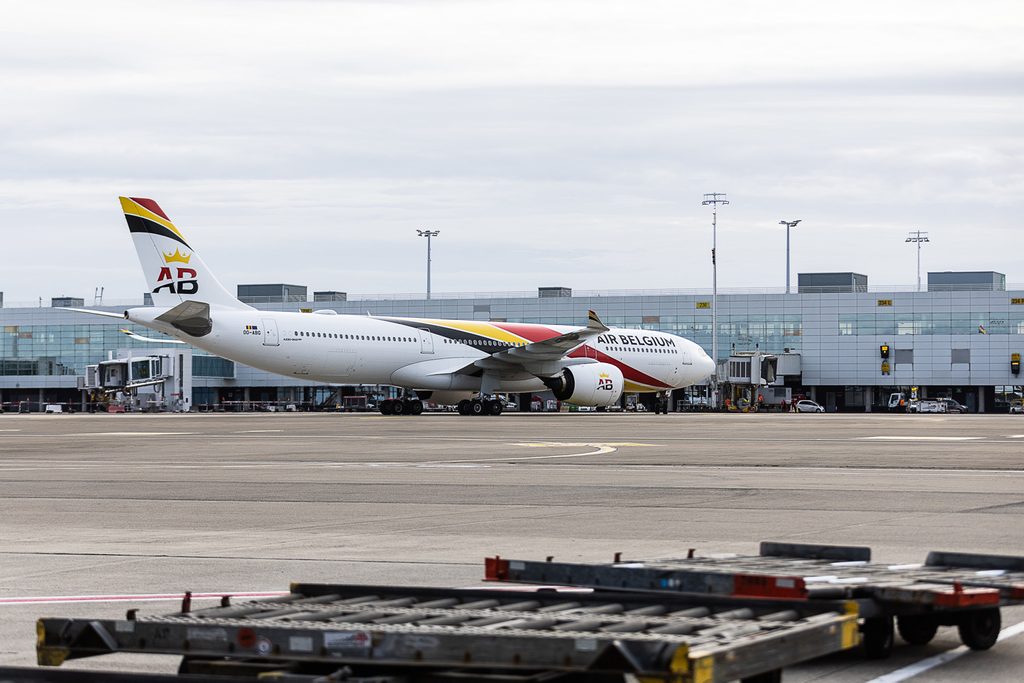Air Belgium ended 2022 with a loss of more than €44 million, but the airline based in Mont-Saint-Guibert, Walloon Brabant, expects to return to profitability in the third quarter of the year, it said on Monday.
With a 74% increase in sales compared to 2021, Air Belgium recorded a turnover of €228 million last year, compared to €131 million the year before. The increase is linked to simultaneous growth in passenger transport (+39.9%) - still heavily affected in 2021 by the effects of the Coronavirus pandemic - and freight (+63.3%), the company explains in its annual balance sheet for 2022, published on the National Bank website.
Scheduled passenger flights were, in fact, able to resume after the Covid-19 crisis and the company has continued its 'ACMI' operations, i.e. chartering aircraft for other airlines, on behalf of French shipowner CMA-CGM, it said on Monday.
However, its expenditure - salaries revised sharply upwards due to wage indexation, fuel prices and lack of profitability on certain routes - literally exploded last year, rising from €152 million to €302.8 million. Air Belgium also suffered from the late delivery of two passenger aircraft, which did not enter into service until after the peak summer season, causing it to miss this important season for ACMI operations.
The result is a net loss of €44.6 million, as against a loss of just under €12 million at 31 December 2021. The increased loss is linked to the sharp rise in fuel prices combined with a negative trend in the euro/dollar exchange rate following the geopolitical situation in Ukraine, Air Belgium states. “This situation has had a direct impact on the profitability of the passenger business but also on the demand for our own passenger transport services or ACMI and charters."
The cumulative loss since the launch of operations at the company, in which the Walloon Region is one of the main shareholders, has now reached more than €91.6 million, according to the company’s financial statement.
Faced with these losses, Air Belgium has decided to gradually suspend its flights to unprofitable destinations that are highly price-sensitive, such as the French West Indies and other parts of the Caribbean. It justifies this by “extreme competition” from French national airlines, which have been offering fares that are almost 50% lower.
On the other hand, Air Belgium continues to fly to Mauritius and South Africa, where flights between Brussels, Johannesburg and Cape Town have been operating since last September.
The freed-up aircraft capacity (10 planes – 6 cargo and 4 passenger) has been allocated to Charter and ACMI customers. “The year 2022 was therefore a positive year in terms of sales, but not yet in terms of profitability,” Air Belgium pointed out on Monday. The carrier expects a return to profitability by the third quarter of 2023.
Citing the company’s management, the L-Post news website reported that, despite numerous requests to this effect from customers, there are no plans to resume routes to the Caribbean until economic conditions improve.
Also according to L-Post, plans to launch two new routes to Asia and the United States, previously announced for September, have been suspended.
When approached, the company declined to confirm this information.
On the financial front, Air Belgium’s capital stood at €50 million at 31 December last year, up from €31 million a year earlier, thanks to a €19 million capital increase by the Chinese group Hongyuan in February 2022. This Asian operator has since held a 49% stake in the company.
Shareholders’ equity, meanwhile, stood at -€41 million at the end of December, as against €15.7 million in the red as at 31 December 2021. At the end of last year, however, certain shareholders granted loans to the company amounting to €7 million.
Faced with this situation, Air Belgium has begun discussions with new investors with a view to carrying out a new capital increase and strengthening its equity. These discussions led to the receipt on 30 June of a binding offer from a potential investor, which was examined and favourably received by the Board of Directors. The offer is for a maximum of €14.4 million and a 49% stake. However, it comes with conditions, including the definition of a joint strategy and the approval of the transaction by the relevant authorities.

